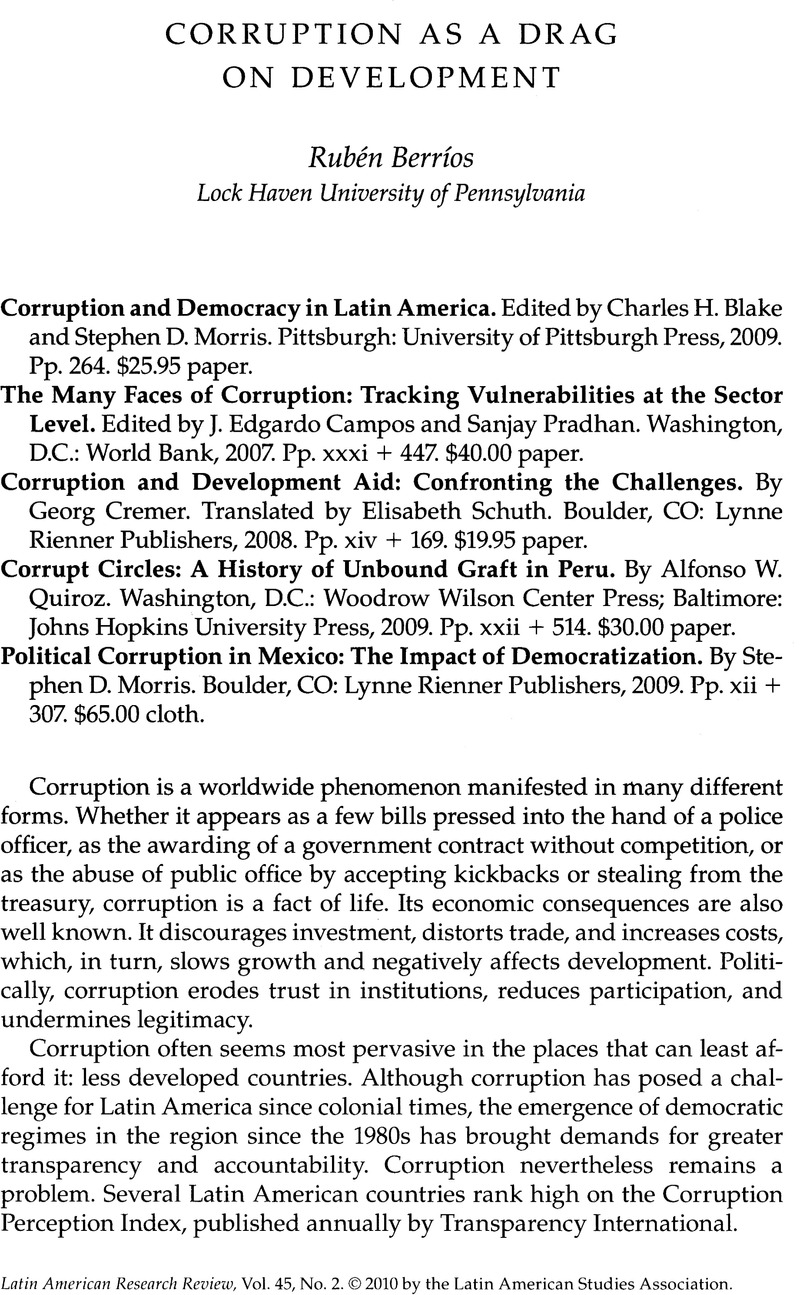Article contents
Corruption as a Drag on Development
Review products
Published online by Cambridge University Press: 05 September 2022
Abstract

- Type
- Review Essays
- Information
- Copyright
- Copyright © 2010 by the Latin American Studies Association
References
1. Eleanor R. E. O'Higgins, “Corruption, Underdevelopment, and Extractive Resource Industries: Addressing the Vicious Cycle,” Business Ethics Quarterly 16, no. 2 (2006): 235–254; Jeffrey D. Sachs and Andrew M. Warner, “The Big Push, Natural Resource Booms and Growth,” Journal of Development Economics 59 (1999): 43–76; Halvor Mehlum, Karl Moene, and Ragnar Torvik, “Cursed by Resources or Institutions?” World Economy 29, no. 8 (2006): 1117–1131.
2. Manzetti and Wilson also blame the increased use of presidential discretionary power, which opens opportunities for graft. In another essay in Blake and Morris's collection, Rehren instead cites the resurgence of neopopulism, arguing that rent-seeking behavior prospers in state-dominated economies.
3. See also Luigi Manzetti and Charles Blake, “Market Reform and Corruption in Latin America,” Review of International Political Economy 3, no. 4 (1996): 662–697.
4. Mitchell A. Seligson, “The Impact of Corruption on Regime Legitimacy: A Comparative Study of Four Latin American Countries,” Journal of Politics 64, no. 2 (2002): 408–433.
5. Kurt Weyland, “Reform and Corruption in Latin America,” Current History 105, no. 688 (2006): 84–89.
6. Adam Przeworski, Democracy and the Market: Political and Economic Reforms in Eastern Europe and Latin America (Cambridge: Cambridge University Press, 1991). See also Janine R. Wedel, Collision and Collusion: The Strange Case of Western Aid to Eastern Europe, 1989–1998 (New York: St. Martin's Press, 1998).
7. Susan Rose-Ackerman, “Una administración reducida significa una administración más limpia?” Nueva Sociedad 145 (1996): 70–86.
- 4
- Cited by


